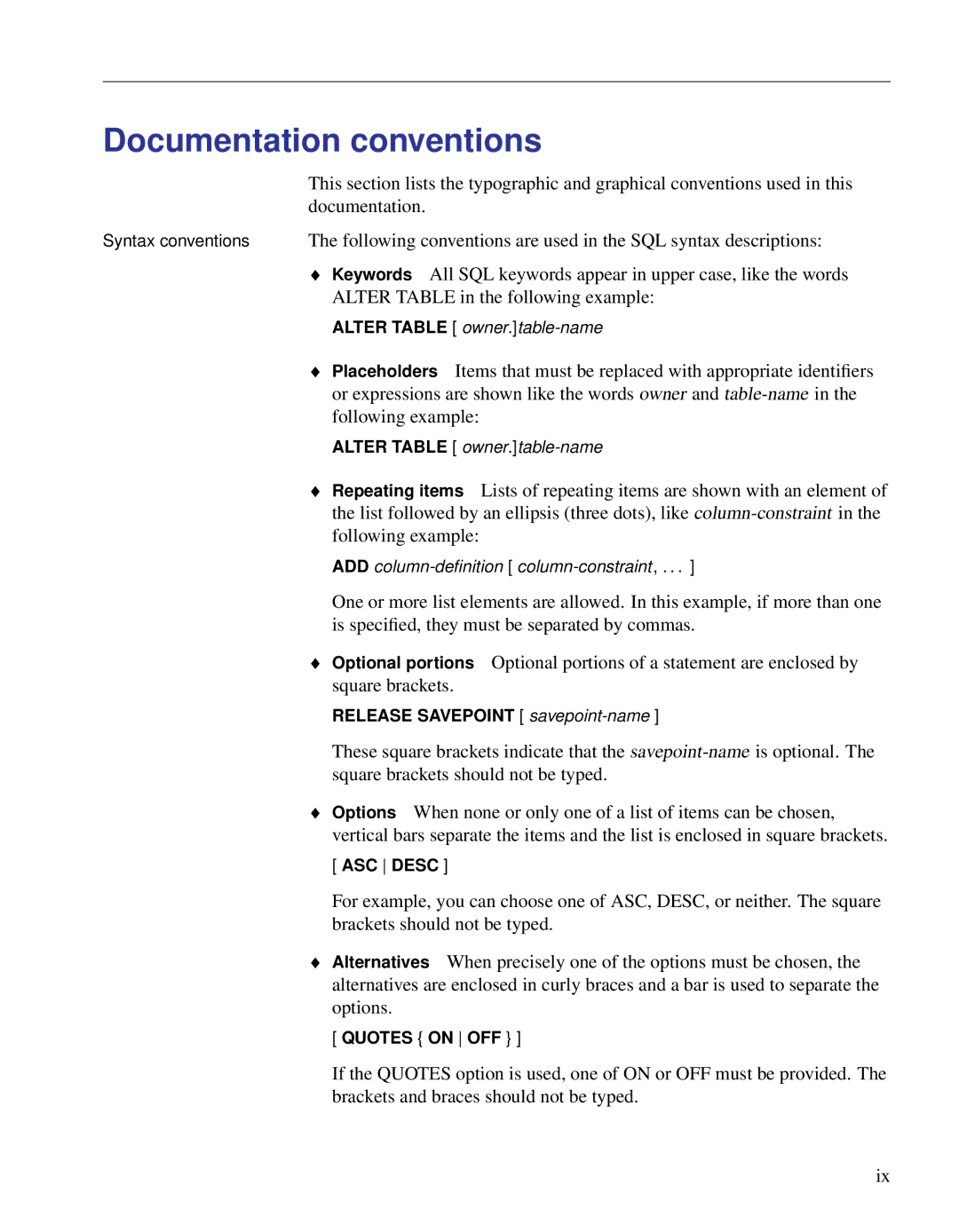Documentation conventions
This section lists the typographic and graphical conventions used in this documentation.
Syntax conventions The following conventions are used in the SQL syntax descriptions:
♦Keywords All SQL keywords appear in upper case, like the words ALTER TABLE in the following example:
ALTER TABLE [
♦Placeholders Items that must be replaced with appropriate identifiers or expressions are shown like the words owner and
ALTER TABLE [
♦Repeating items Lists of repeating items are shown with an element of the list followed by an ellipsis (three dots), like
ADD
One or more list elements are allowed. In this example, if more than one is specified, they must be separated by commas.
♦Optional portions Optional portions of a statement are enclosed by square brackets.
RELEASE SAVEPOINT [
These square brackets indicate that the
♦Options When none or only one of a list of items can be chosen, vertical bars separate the items and the list is enclosed in square brackets.
[ ASC DESC ]
For example, you can choose one of ASC, DESC, or neither. The square brackets should not be typed.
♦Alternatives When precisely one of the options must be chosen, the alternatives are enclosed in curly braces and a bar is used to separate the options.
[ QUOTES { ON OFF } ]
If the QUOTES option is used, one of ON or OFF must be provided. The brackets and braces should not be typed.
ix
